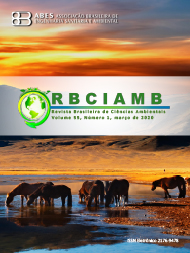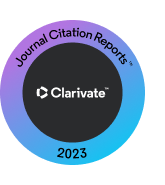HEALTH SERVICE WASTEWATER TREATMENT STUDY TO REDUCE ECONOMIC COSTS AND ENVIRONMENTAL IMPACTS
DOI:
https://doi.org/10.5327/Z2176-947820200620Keywords:
advanced oxidation processes; fenton reagent; health service waste.Abstract
Universities and research institutions generate about 1% of the world’s hazardous chemical waste, many of which is in the health area. In order for these wastes to be treated as wastewater, it is necessary to adapt them to the environmental legislation for the final disposal of Health Service waste and wastewater disposal. The objective of this study is to present a proposal for the treatment of health care laboratory wastewater, through advanced oxidation processes (AOP). The wastewater generated from analysis equipment, Labmax 240 Premium, was used, which performs biochemical and immunochemical tests of blood and human serum, from the Diagnostic, Teaching and Research Laboratory of the Germano Sinval Faria School of
Health (ENSP)/Fiocruz. For its treatment, the following alternatives were compared: hydrogen peroxide (H2O2), photolysis (UV), H2O2/UV, Fenton reagent and photo-Fenton. Among all the AOP studied, the Fenton reagent showed the best results under the conditions of molar concentration of 3:1 oxidant (H2O2: QOD) with single addition; Fe 2+ catalyst mass ratio was 5:1 (H2O2: Fe2+) and pH 2.0. The removal efficiencies were of QOD of 73.4%, of BOD of 46%, turbidity of 90.1%, occurring to a total consumption of the oxidant (H2O2) and generation of 2,126 mg/L of sludge, making the final wastewater comply with the environmental legislation (BRASIL/2011). The economic analysis revealed a saving of 71.8% in the total cost in relation to the practiced disposal, incineration, which makes it viable and indicates that the method used generates less global environmental impacts.
Downloads
Downloads
Published
How to Cite
Issue
Section
License
Copyright (c) 2020 Revista Brasileira de Ciências Ambientais

This work is licensed under a Creative Commons Attribution 4.0 International License.


























